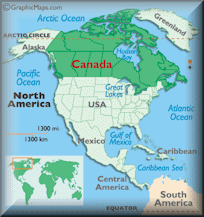-
-

Please Wait...
-
.on.ca Canadian Domain Country Information - .on.ca Canada Country Information
.on.ca

Price and Requirements for .on.ca Domains
![]()

.on.ca Canada Country Information
Canada is a North American country consisting of ten provinces and three territories. Located in the northern part of the continent, it extends from the Atlantic Ocean in the east to the Pacific Ocean in the west, and northward into the Arctic Ocean. Spanning over 9.9 million square kilometres, Canada is the world's second-largest country by total area, and its common border with the United States is the longest land border in the world.
The land that is now Canada has been inhabited for millennia by various groups of Aboriginal peoples. Beginning in the late 15th century, British and French expeditions explored, and later settled, along the region's Atlantic coast. France ceded nearly all of its colonies in North America in 1763 after the Seven Years' War. In 1867, with the union of three British North American colonies through Confederation, Canada was formed as a federal dominion of four provinces. This began an accretion of provinces and territories and a process of increasing autonomy from the United Kingdom. This widening autonomy was highlighted by the Balfour Declaration of 1926 and reaffirmed by the Statute of Westminster of 1931, which declared self-governing dominions within the British Empire to be equal. The Canada Act of 1982 finally severed the vestiges of legal dependence on the British Parliament.
Canada is a federal state that is governed as a parliamentary democracy and a constitutional monarchy with Queen Elizabeth II as its head of state. It is a bilingual nation with both English and French as official languages at the federal level. One of the world's most highly-developed countries, Canada has a diversified economy that is reliant upon its abundant natural resources and upon trade – particularly with the United States, with which Canada has had a long and complex relationship. It is a member of the G7, G8, G20, NATO, OECD, WTO, Commonwealth of Nations, Francophonie, OAS, APEC, and UN. With the sixth-highest Human Development Index globally, Canada has one of the highest standards of living in the world.
Canada occupies a major northern portion of North America, sharing the land borders with the contiguous United States to the south and the US state of Alaska to the northwest. Canada stretches from the Atlantic Ocean in the east to the Pacific Ocean in the west; to the north lies the Arctic Ocean. By total area (including its waters), Canada is the second-largest country in the world, after Russia. By land area alone, Canada ranks fourth.
The country lies between latitudes 41° and 84°N, and longitudes 52° and 141°W. Since 1925, Canada has claimed the portion of the Arctic between 60° and 141°W longitude, but this claim is not universally recognized. Canada is home to the world's northernmost settlement, Canadian Forces Station Alert, on the northern tip of Ellesmere Island – latitude 82.5°N – which lies 817 kilometres (508 mi) from the North Pole. Much of the Canadian Arctic is covered by ice and permafrost. Canada has the longest coastline in the world, with a total length of 202,080 kilometres (125,570 mi); additionally, its border with the United States is the world's longest land border, stretching over 8,890 kilometres (5,520 mi).
Since the end of the last glacial period, Canada has consisted of eight distinct forest regions, including extensive boreal forest on the Canadian Shield. Canada has more lakes than any other country, containing much of the world's fresh water. There are also fresh-water glaciers in the Canadian Rockies and the Coast Mountains. Canada is geologically active, having many earthquakes and potentially active volcanoes, notably Mount Meager, Mount Garibaldi, Mount Cayley, and the Mount Edziza volcanic complex. The volcanic eruption of the Tseax Cone in 1775 was among Canada's worst natural disasters, killing 2,000 Nisga'a people and destroying their village in the Nass River valley of northern British Columbia. The eruption produced a 22.5-kilometre (14.0 mi) lava flow, and, according to Nisga'a legend, blocked the flow of the Nass River.
.on.ca Canada Domain Name - Country Information
| Country Domain | Canada Domain Name .on.ca |
|---|---|
| Country Information | Canada Domain Country Information .on.ca |
| TLD Bulk & Advanced Search | Canada Bulk Domain Registration .on.ca |
| WhoIs Server | .on.ca Whois Server Information |
| Domain Renewals | Renewal Canadian Domain .on.ca |
| Domain Transfer | Transfer Domain .on.ca |
| Domain Hosting | .on.ca Canada Web Hosting |
| SSL Certificates | SSL Certificates |
| Email Services | .on.ca Canada Email Services |
| Domain FAQ | .on.ca Domain Registration FAQ |
Canada Country Information Search Terms
Canadian Domain Country Information Canadian Domain Registrar Canadian World Wide Domain Registration Canadian Country Code Top Level Domain .on.ca Domain Information Canadian Country Information Canada Country Information


























